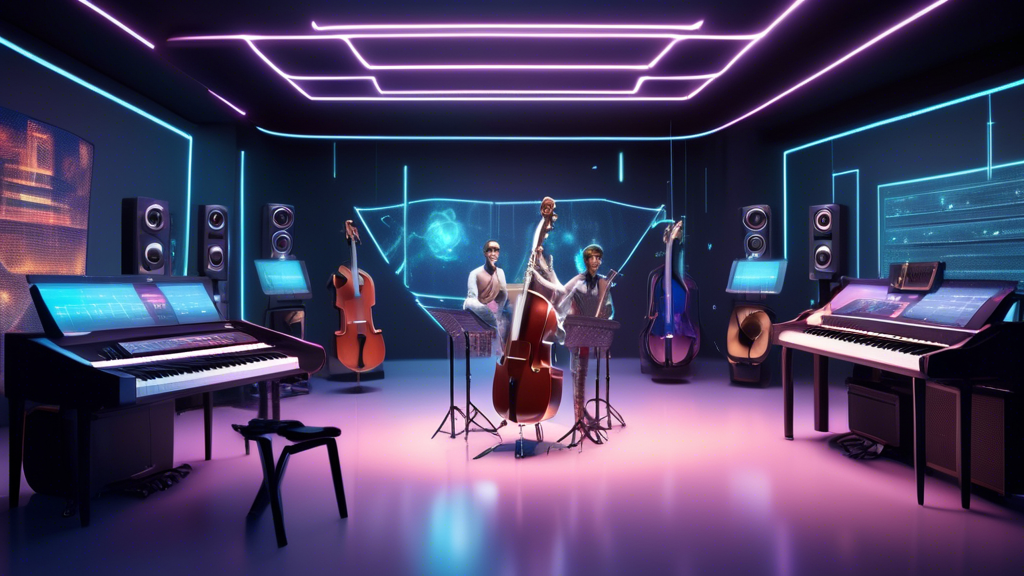Artificial Intelligence (AI) is rapidly transforming various fields, and the music industry is no exception. AI music creation promises to democratize music production, enhance creativity, and streamline workflows. However, it also presents significant challenges that need to be addressed. This article explores the intricate balance between the challenges and opportunities in AI music creation.
Opportunities in AI Music Creation
1. Democratization of Music Production
One of the most notable opportunities offered by AI in music creation is the democratization of music production. AI-powered tools enable individuals with little to no musical training to compose, arrange, and produce music. Services like Amper Music and AIVA allow users to create professional-grade compositions simply by inputting a few parameters. This democratization opens the door for a wider range of people to express their creativity and potentially find their musical niche.
2. Enhanced Creativity and Collaboration
AI tools can serve as collaborative partners to musicians, offering new ways to explore creative possibilities. AI can generate novel melody lines, harmonies, and rhythms, which can then be refined by human composers. Tools such as OpenAI’s MuseNet can generate music in a variety of styles, providing a starting point for artists looking for inspiration. This form of human-AI collaboration can lead to innovative musical pieces that might not have been conceived otherwise.
3. Streamlining Production Workflow
AI has the potential to significantly streamline music production workflows. From automated mixing and mastering to AI-driven sound design, these technologies can reduce the time and effort required to produce high-quality music. For example, LANDR offers AI-powered mastering services that make the final polishing of tracks faster and more accessible. This efficiency allows musicians to focus more on the creative aspects of music-making.
Challenges in AI Music Creation
1. Quality and Authenticity
One of the main challenges in AI music creation is ensuring the quality and authenticity of the compositions. While AI can generate music, it often lacks the emotional depth and nuance that human composers bring to their work. The subtle variations and unique interpretations that come from human experience are difficult for AI to replicate. Ensuring that AI-generated music can evoke genuine emotion remains a significant hurdle.
2. Copyright and Ethical Concerns
AI-generated music introduces complex questions regarding copyright and ownership. If an AI creates a piece of music, who owns the rights to it? The developer, the user who input the parameters, or the AI itself? Additionally, there are ethical concerns regarding the use of AI to create music that closely mimics existing works, potentially infringing on the intellectual property of original artists. Clear legal frameworks and ethical guidelines are needed to navigate these issues effectively.
3. Threat to Human Musicians
There is also concern that the rise of AI-generated music may displace human musicians and composers. As AI tools become more sophisticated, they could potentially replace jobs in music production, composition, and even performance. This dislocation poses a significant challenge to the livelihood of musicians and the broader cultural ecosystem of music.
Balancing Technology with Human Touch
To fully harness the benefits of AI music creation while mitigating its challenges, a balanced approach is necessary. Musicians, developers, and policymakers need to work together to create ethical guidelines, ensure high standards of quality, and promote collaboration between humans and AI. By doing so, the music industry can innovate while preserving the human touch that makes music truly resonate.
In conclusion, AI music creation presents both thrilling opportunities and daunting challenges. By addressing these challenges thoughtfully and embracing the opportunities with creativity, the music industry can evolve in ways that enhance and expand the artistic landscape.


